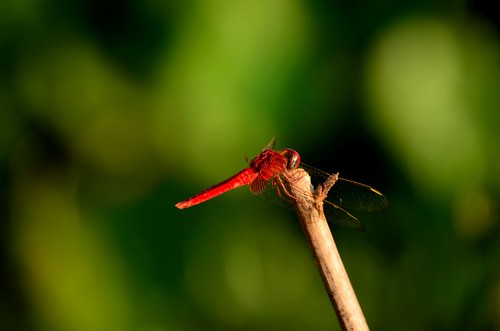Australian star cricketer Phillip Hughes died as a result of injuries he sustained when he was struck by a bouncer on Tuesday during a domestic league game at the Sydney Cricket Ground. Hughes was wearing a helmet, but the ball made contact with an unprotected area, damaging his vertebral artery which caused bleeding in the brain. He died two days later at a Sydney hospital from his injuries, three days shy of his 26th birthday.
In a gesture of respect, IT worker Paul Taylor put his old cricket bat outside the front door of his home in Sydney with a cricket cap slung on the handle and tweeted the picture to his followers with the hashtag #putoutyourbats. The idea soon caught on among mourning fans in Australia and beyond.
The #CricketFamily has united for a powerful tribute to Phillip Hughes: http://t.co/EVLIN8Zf3v #PutOutYourBats pic.twitter.com/kWMd0JNUys
— cricket.com.au (@CricketAus) November 28, 2014Very touching tribute for Phillip Hughes at Adelaide Oval.Our sincere condolences to family friends & cricket family pic.twitter.com/596tEAUL8e
— Crows Supporters Grp (@crowssupporters) November 28, 2014Awesome! Well done Google Australia #PutYourBatsOut #63NotOutForever RIP Phillip Hughes. pic.twitter.com/AZPsXtRcC3
— ★mallyHelen★ (@malsagirl) November 28, 2014PHOTO: A tribute to Phillip Hughes at the MCG #putoutyourbat @theage pic.twitter.com/vNZKKWFu65
— The Age Photography (@theage_photo) November 28, 201463 bats have been placed in the windows of @CricketAus headquarters as a tribute to Phillip Hughes. #9Newscomau pic.twitter.com/MklWwaNYAS
— Nine News Australia (@9NewsAUS) November 28, 2014In tribute to Phillip Hughes #putyourbatsout #408 pic.twitter.com/0TNvem5VXa
— Melbourne Renegades (@RenegadesBBL) November 28, 2014From the Gilly kids xxx #PutOutYourBats #RIPPhillipHughes pic.twitter.com/aeheTLw5dI
— Adam Gilchrist (@gilly381) November 27, 2014Gorgeous tribute at Macksville Primary School for Phillip Hughes pic.twitter.com/8aXvMD2l4i
— Lucy Carter (@lucethoughts) November 28, 2014#putoutyourbats for Phil Hughes. A sad day for the sporting world pic.twitter.com/UCDeZ0g4rR
— Saracens Rugby Club (@Saracens) November 28, 2014The @Momentum_za Proteas wmn have joined the tribute in their innings break v India #PutOutYourBats #CricketFamily pic.twitter.com/a2Ev7eMKVR
— Cricket South Africa (@OfficialCSA) November 28, 2014#PutOutYourBats l @BLACKCAPS and Pakistan team mourn the passing of Phil Hughes during the ongoing test match pic.twitter.com/ItmEao3Z5G
— CNN-IBN News (@ibnlive) November 28, 2014The whole of @BCBtigers team paying their respect to Phillip Hughes after the end of the 4th ODI. #putoutyourbats pic.twitter.com/eBPKXJenph
— Bangladesh Cricket (@BCBtigers) November 28, 2014Hughes was born in Macksville, a small town on the north coast of New South Wales, and was so talented that he had his grade A debut at the age of 12. To mark his passing, matches were cancelled in Australia and in other countries. Cricketers across the world have tweeted to commemorate him:From Sydney to Secunderabad, Phillip Hughes is being remembered http://t.co/YtGrBFJG3T
— ESPNcricinfo (@ESPNcricinfo) November 28, 2014Phillip Hughes: He died doing something he loved, with a cricket bat in his hand. http://t.co/cgnuFEK9me #PhilHughes pic.twitter.com/SqejYugK9R
— Firstpost (@firstpostin) November 28, 2014Check out ESPN for more tributes to the cricket star. The post was also published in Global Voices Online.















